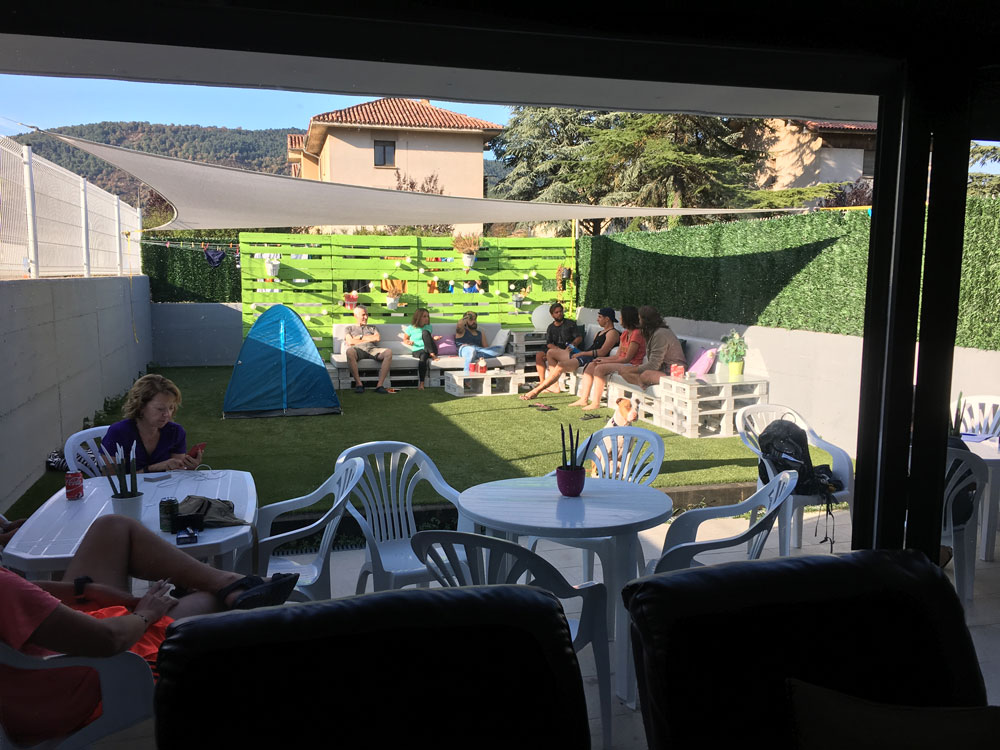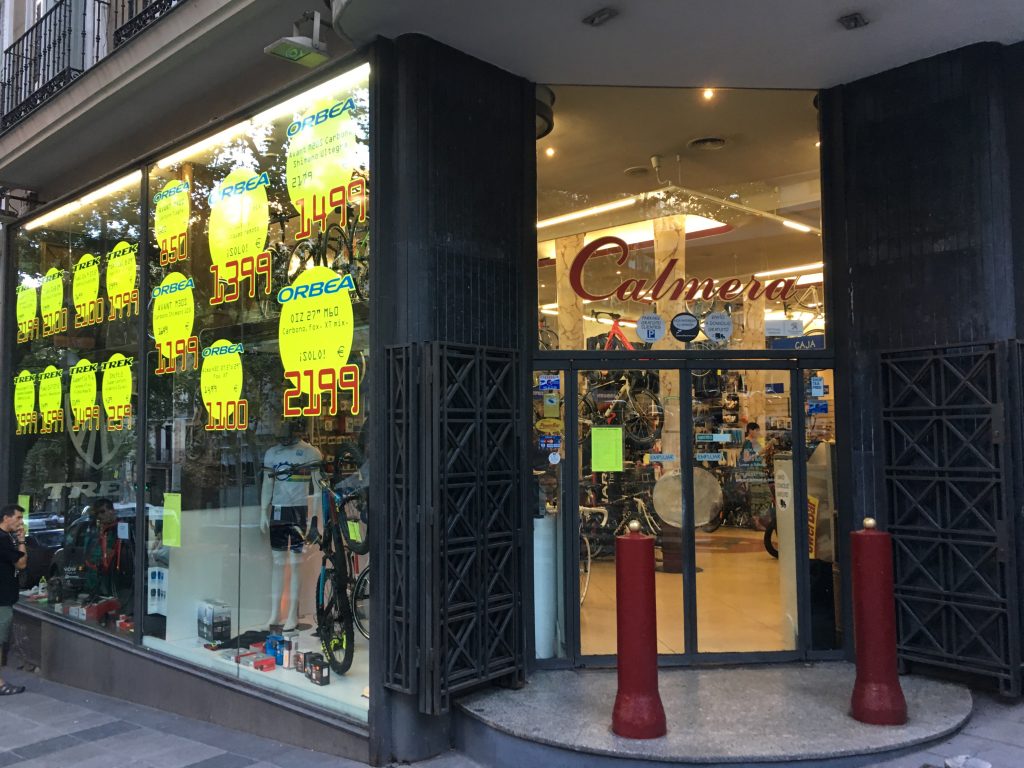Resupply and accommodations are simple and frequent on the Camino meaning that cyclists and walkers can pack very light, no need to carry tent, sleeping mat, cooking gear, food, or large quantities of water.
Accommodations:
One of the features that makes the Camino de Santiago so attractive is the availability of inexpensive, frequent accommodations that do not require booking ahead. Every 3-12 miles there is a pilgrim hostel (albergue in Spanish) that costs between €5-15 for a dormitory bed. Many also offer convenient amenities such as a shared kitchen, laundry machines and/or hand clothes washing station, wifi internet, meals, etc.
Be sure to pick up a Pilgrim Passport, called a Credencial, to be able to access the amazing network of pilgrim accommodations along the Camino routes.
While some private albergues can be booked in advance, many operate on a “first come, first serve” basis, so there is no need to decide ahead of time exactly how far you will ride each day. Some municipal and parochial albergues give first priority to walkers during high season, and may not allow cyclists to check in until later in the day (sometimes as late as 6pm). Private albergues, however, are usually more flexible and happy to accommodate cyclists at the same priority as walkers. See our list of bike-friendly albergues that offer a secure place to store bicycles and other bicycle amenities.
In high season, such as July and August, albergues may fill up quickly, especially in larger cities or popular stage ends, so it’s good to have a “backup plan” in case albergues are full in your stage end of choice. This could mean cycling a few more miles to the next town with an albergue or paying a bit more for a private room in a hotel.
For those who prefer private rooms over dormitories, there are many options for different budgets. Splitting a simple private room with another pilgrim can often be almost as inexpensive as a dormitory. For example, a room with shared bathroom in a pensión can cost as little as €25-35 Euros (€12.50-17.50 per person). For those traveling with a higher budget, very comfortable private rooms with private bath will cost around €40-80, and there are also often luxury options as well if you prefer to pamper yourself.
Resupply, Food, Water:
The Camino has abundant cafes, restaurants and grocery stores, so there is no need to carry more than a few snacks or perhaps a packed lunch. You can easily eat three meals a day in cafes or restaurants while you cycle, or pass several shops a day where you can buy your own groceries. Breakfasts in Spain often consist of toast or a pastry with coffee (€2-3. For something more fortifying, seek out a tortilla de patatas, (Spanish potato omelette). For lunch, a ham sandwich (bocadillo de jamón €3-4) from a cafe is a popular choice, and many cafes also offer an array of tasty tapas (or pinchos as they are called in some areas of Spain) which are different appetizer-style snacks (often €1-2 each or more for something extra special). For dinner, many pilgrims opt for the menú peregrino, a complete meal usually with a choice out of several appetizers, main courses, and desserts. With wine and bread, the cost is usually €8-12.
Water can be refilled at any town or village, which are usually less than 5km (3 miles) between. A cyclist should carry 0.5-1L of water while riding, but could theoretically drink at fountains when stopped in towns.
Resupply: Bicycle parts and gear
Most larger towns and cities along the Camino Francés have a bike shop, so there is no need to carry extensive spare parts beyond a spare inner tube, patch kit and basic tools.
See our list of Bike Shops along the Camino. You can also buy any gear you may have forgotten, lost, or decided that you do need afterall.
The large outdoor and travel gear retailer Decathlon has stores at a variety of cities along the route.






